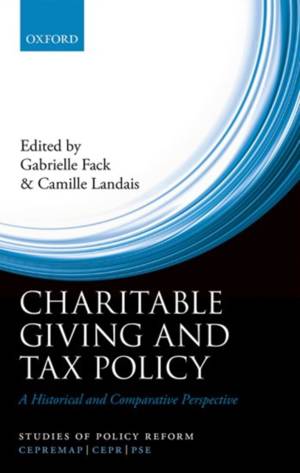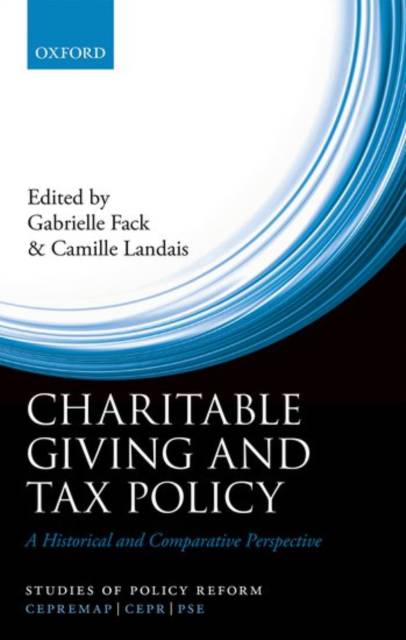
- Afhalen na 1 uur in een winkel met voorraad
- Gratis thuislevering in België vanaf € 30
- Ruim aanbod met 7 miljoen producten
- Afhalen na 1 uur in een winkel met voorraad
- Gratis thuislevering in België vanaf € 30
- Ruim aanbod met 7 miljoen producten
Zoeken
Charitable Giving and Tax Policy
A Historical and Comparative Perspective
€ 141,95
+ 283 punten
Omschrijving
Over the past couple of decades, differentials in the level of private contributions to charitable organizations have become a central matter of public policy. Because private charitable contributions finance many socially valuable activities (for example, education and the arts), many governments have tried to boost private philanthropy through various active policy interventions. Furthermore, the temptation to rely on private contributions to finance the provision of public goods has increased substantially in recent years as fiscal constraints have become tighter. Yet there is little robust quantitative evidence regarding the differentials in private charitable giving across countries, and more importantly very little consensus on why these differentials may exist. This volume provides an original, comparative, and historical analysis of charitable giving and of tax policies towards private philanthropy across different countries. It sheds new light on the determinants of private philanthropy and offers interesting practical insights for improving tax policies towards charitable giving.
Specificaties
Betrokkenen
- Uitgeverij:
Inhoud
- Aantal bladzijden:
- 164
- Taal:
- Engels
- Reeks:
Eigenschappen
- Productcode (EAN):
- 9780198723660
- Verschijningsdatum:
- 15/11/2016
- Uitvoering:
- Hardcover
- Formaat:
- Genaaid
- Afmetingen:
- 140 mm x 218 mm
- Gewicht:
- 340 g

Alleen bij Standaard Boekhandel
+ 283 punten op je klantenkaart van Standaard Boekhandel
Beoordelingen
We publiceren alleen reviews die voldoen aan de voorwaarden voor reviews. Bekijk onze voorwaarden voor reviews.










